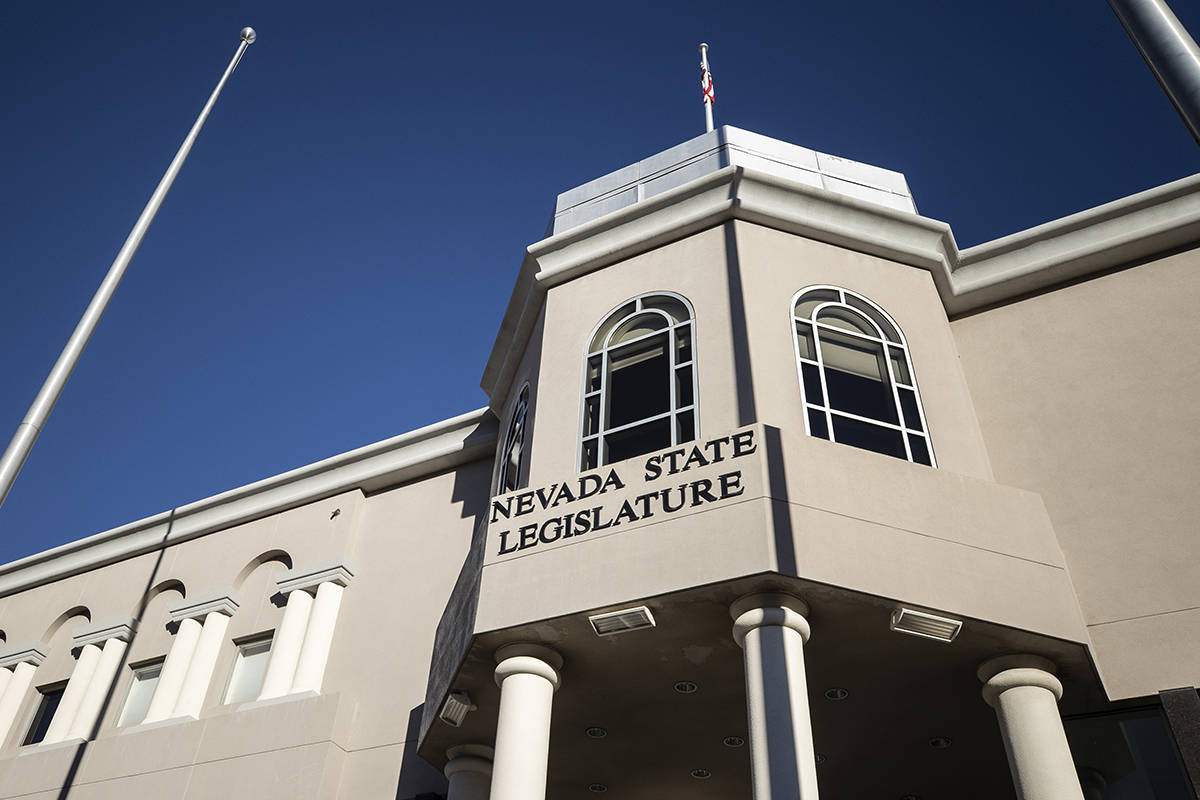Casino winnings could be garnished for child support
CARSON CITY — Proposals to garnish casino winnings from people who owe child support, allow college athletes to earn money from endorsements, and change how school boards are constituted in the state’s two largest districts were among some 30 bills heard in committees Tuesday as lawmakers approached the halfway mark of the 2021 session.
Another topical bill would seek to enforce energy efficiency standards for new appliances sold, leased or installed in the state.
Assembly Bill 406, the garnishment bill heard by the Assembly Judiciary Committee, would extend to casino winnings a procedure already in place for people who win the lottery but owe child support. Child support enforcement officials told the committee there are more than 83,000 active child support cases currently in the state, with more than 68,000 people in arrears on payments.
Nineteen other states have such procedures in place dating to 2008. In Colorado, where the gambling industry fought the proposal for five years, more than $500,000 was collected in the first year follow the law’s enactment, supporters testified.
“Nevada is on the forefront of engaging in numerous actions to include license suspension, income tax withholdings, pension seizures, passport suspensions. But gaming intercepts is the huge piece that we are missing in Nevada,” said Karen Cliffe, chief deputy in the Clark County district attorney’s family support division. Child support collections “significantly” reduce government costs of assistance to single-parent families, she said.
Previous efforts to enact similar procedures have run up against privacy concerns and worries over impacts to the state’s dominant casino industry. In response to questions, supporters noted that the garnishment would only apply in child support cases in Nevada, not in other states.
Gaming interests spoke in opposition to the bill in its current form.
“While we understand that systems similar to this are in place in other states that have gambling, the gaming industry in Nevada is much bigger and more complex than in most other states,” said Misty Grimmer of The Ferraro Group, on behalf of the Nevada Resort Association. “So the complexity of the system and the privacy concerns are a more prominent factor here.”
Elected school boards
Assembly Bill 255 would change school board composition in Clark and Washoe counties, creating hybrid seven-member boards with four elected members and three appointed members. The three appointees would be chosen by the county commission and the governing bodies of the two largest municipalities in the district.
Sponsor Jason Frierson, D-Las Vegas, the Assembly Speaker, noted “ongoing debate about how to best structure school boards to best support student outcomes.” Advocates of elected school boards cite accountability to voters while critics cite low voter turnout, special interest influence, and potential politicization.
Frierson told the Assembly Education Committee that appointed members would add experience, diversity and greater accountability to school boards, professionalizing them “to make sure, when we’re talking about huge budgets and we’re talking about the development of curriculum, when we are talking about the system that our children are involved in for majority of their day, that these folks have experiences that would enrich those bodies.”
The Clark County Commission, local governments and business interests were among groups testifying in favor of the proposal, while the Clark County School District opposed it and teachers unions split, with the Clark County Education Association in support and the Nevada State Education Association against.
College endorsements
Assembly Bill 254, also sponsored by Frierson and heard by the Assembly Education Committee, would allow Nevada college athletes to earn money from endorsements; 33 other states have similar legislation in the works depending on action at the federal level sought by the National Collegiate Athletic Association. The Nevada bill “is intended to get out of the way” when federal action is taken, Frierson said.
The speaker, who played football at the University of Nevada, Reno, said he was “proud to have participated in intercollegiate sports at UNR, but I also had four knee surgeries and one shoulder surgery afterwards. And I look at that stadium and I realized that we helped to pay for that and help build that stadium.”
No one testified against the bill.
Also on Tuesday, Assembly Bill 383, sponsored by Assemblyman Howard Watts, D-Las Vegas, and heard by the Assembly Growth and Infrastructure Committee, would require the state to adopt energy efficiency standards for appliances and the ban the sale, lease or installation of new appliances that don’t meet those standards starting in 2023. Consumer and clean energy groups spoke in favor of the bill while homebuilders expressed concern over some of the appliance guidelines and whether manufacturers might make fewer products available in the state to comply with the standards.
Contact Capital Bureau reporter Bill Dentzer at bdentzer@reviewjournal.com. Follow @DentzerNews on Twitter.














